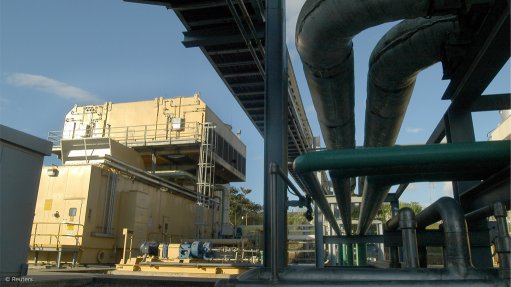
Photo by: Reuters
PERTH (miningweekly.com) – Despite the numerous challenges facing the Australian oil and gas industry, the sector would remain one of the economy’s shining lights, Australian Petroleum Production and Exploration Association (Appea) chairperson Rob Cole said on Monday.
Speaking at the Appea conference, in Perth, Cole noted that the oil and gas industry would soon make up more than 3% of the Australian economy.
In 2011/12, liquefied natural gas (LNG) exports earned A$12-billion in revenue, and added A$29.4-billion to Australia’s coffers. In the same year, the oil and gas industry paid more than A$8-billion in tax.
“With A$200-billion worth of new projects now under construction, the industry’s contribution is set to grow even further. This investment has already generated more than 100 000 jobs across the Australian economy, and will grow even further.”
Cole added that LNG growth was expected to increase the value of Australia’s LNG exports from about A$15-billion to nearly A$60-billion between now and 2018, when the country’s LNG output would more than triple to about 85-million tonnes a year.
By 2025, building and operating these projects would have added more than A$260-billion to Australia’s gross domestic product, while the oil and gas industry’s total tax payments would have reached more than A$12-billion a year.
However, Cole told delegates on Monday that Australia’s competitiveness was under threat, with the industry being challenged on a number of fronts.
“Onshore and offshore activities that have proven safe over many decades have at times been subject to campaigns of fear and misinformation, while some groups are increasing calls for our industry to subsidise manufacturing operations by setting aside cheaper gas for some local customers.
“Some groups are simultaneously calling for both restrictions on gas operations and for gas reservation quotas,” Cole said.
He pointed out that there were several LNG projects on the world’s drawing board, with the number planned being twice what was needed to meet the next decade’s forecast demand growth.
“Our traditional LNG rivals remain strong and new ones are emerging in North America and East Africa. These competitors can build LNG projects for 20% to 30% less than Australian proponents,” Cole said.
Cole said that the industry’s challenge was to re-examine its operational practices and seek ways to cut costs and enhance productivity.
He added that the nation’s policy and regulatory framework also needed revision.
“Change is difficult and it will always prompt resistance. But we should recognise that the past two decades of Australian prosperity were built on policies that fostered flexibility, productivity and innovation.”